
22 minute read
Marianne Heron
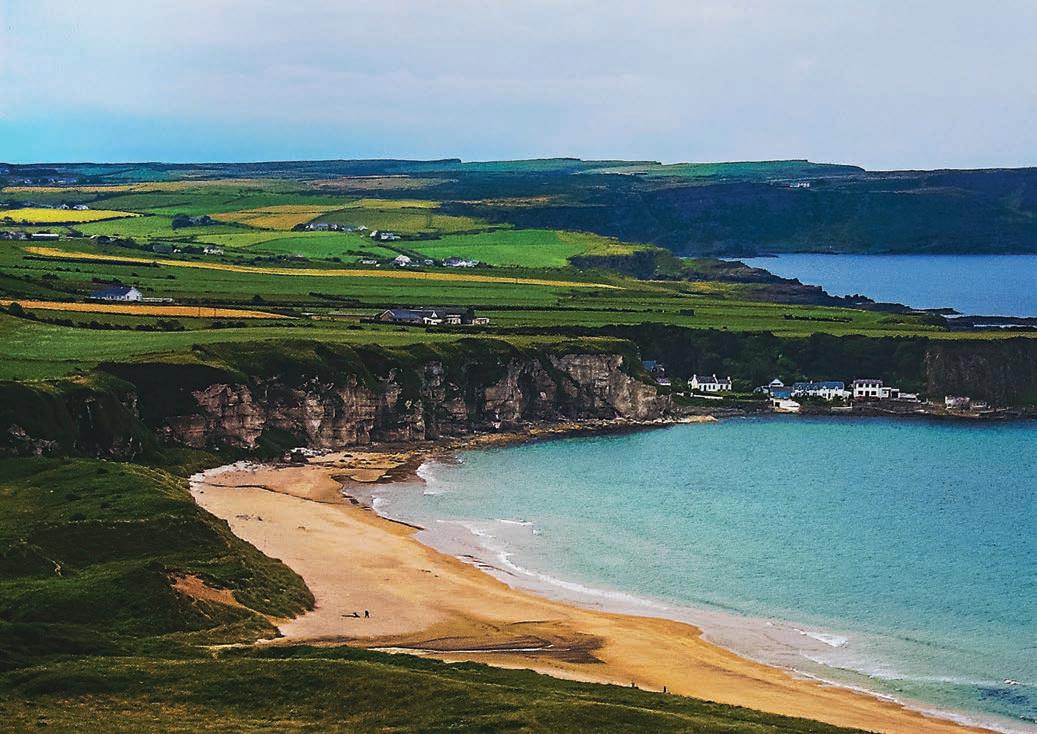
AS I SEE IT
Advertisement
MARIANNE HERON
Little things sometimes say a lot. Like the way someone mentioned the other day that they were going on holiday to Ireland. Good plan, yes, but the odd thing about it was that the person involved comes from the North of Ireland. To this individual the 26 counties are seen as a di erent country and there are plenty of people in Ulster who think like that, not necessarily those who have voted Unionist in the Northern Assembly elections on May 5
Like many of us here in the South, Northerners are in favour of a united Ireland, but not just yet, thank you. It’s too early and it’s hard to see how the arrangement might work in practical and nancial terms isn’t it? According to a survey carried out earlier this month only 30% of those surveyed in the North want a united Ireland now but a third would be in favour in 10 to 15 year’s time. Aspirations are similar here and like our Northern counterparts our main concerns are around issues like the rising cost of living and the state of the health service. But emotionally and sometime in the future it doesn’t make sense for most to have one of our four green elds cut o by a border.
So we need change over the next a decade or a decade and a half before we are ready to embrace a united island. Having lived both sides of the Border I believe that trying to rush the issue and hold a border poll — as some nationalists and Sinn Fein in particular want to do is unwise at this point, would raise Unionist hackles and delay uni cation.
Back in the day in the aftermath of the Troubles I reported on an experiment where schoolboys from the Protestant Shankill in the North were brought down to visit a school in Shankill in Co. Dublin. Initially the atmosphere was tense, the Northern lads had never been south much, less to a Catholic school. en the facilitator asked which football teams the two groups supported and which trainers they were wearing? A forest of hands went up for Manchester United and Nikes and the ice was broken. e group became one.
We need more crossBorder initiatives like the ‘Shared Island’ projects for infrastructure, tourism and climate action. We need more co-operation — look at the madness of having two di erent sets of rules operating between North and South during Covid. We can look at what can be learnt from institutions operating on an all-Ireland basis, in business, sport and the church what can we share and save by doing so. On the one hand duplication in a small island doesn’t seem to make economic sense, on the other there is the question of how much it would cost to take on the North where the British subvention runs to £10billion a year and a quarter of all employees in the North’s less dynamic economy work in the public service. e cost element is one of the factors that makes people say ‘not yet’ when it comes to a united Ireland. More optimistic estimates put the cost of unity much lower when the bene ts pay o . For instance, North South trade has increased dramatically since Brexit, a symptom of the way relations are beginning to normalise outside the political sphere. e more we share the less that Border will matter.
And let’s forget our shared attitudes: a majority in the North wanted to remain in the EU. And can you imagine Northerners agreeing with Boris Johnson’s latest wheeze to ship cross -channel refugees o to Rwanda rather than o ering sanctuary to 20,000 Ukrainians as we have done here?
What will climate change mean for allergies?
CLAIR WHITTY
Many people get hayfever every year. It’s frustrating. It a ects your eyes, nose, and mouth. It’s caused by pollens from grass, owers, trees, and weeds. You cannot escape these pollens that arrive every year. But what would you say if I told you that you can expect to see longer hayfever seasons? You wouldn’t be impressed would you.
I recently listened to a lecture given by Dr Ross Walton, an Immunologist and clinical researcher. He spoke about climate change and how we may see longer hayfever seasons. He said that increased CO2 levels leads to faster, larger growth of plants and trees and this can lead to a change in the total pollen burden with pollen being produced for longer. Where there is a warmer climate with milder winters it can also lead to prolonged owering of native ora. We are all familiar with the changes in the weather. We are seeing more frequent forest res, droughts, heatwaves, thunderstorms, oods, storms, and hurricanes. Some of you have already noticed that your symptoms last longer or are more severe in recent years.
Dr. Walton suggested a healthy diet that includes probiotic and fermented foods as well as exercise, and stopping smoking can also help. You’ll need a good strong immune system to help protect you. When you inhale pollens, your immune system reacts inducing a release of histamine which causes the symptoms that you experience. Inadequate sleep and high levels of stress and external environmental pollutants can also have a negative impact on your immune system. Rather than avoiding going outside he surprisingly suggested the opposite, get out a little every day to help increase your resistance.
Every year I talk about Hayfever, and I talk about taking supplements in advance of the season to help lessen the problem. One of my long time favourites is A.Vogel Pollinosan, this is because I see real results with it. Start it before the season even begins, now would be a great time. You can get A.Vogel Lu a Complex for young children. Choose A.Vogel Pollinosan Spray to cleanse the nasal passageway and to ease symptoms. You can also get Pollinosan Hayfever Eye Drops with chamomile and HLA to soothe itchy, irritated eyes. Customers love these products; I hope you will too.
Shop online at www. naturalhealthstore.ie where you’ll be able to take a look at these brands. Natural Health Store, Market Cross Shopping Centre Phone: 056 7764538 Email: info@naturalhealthstore.ie

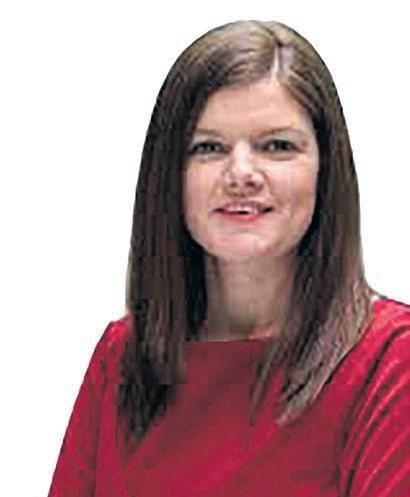
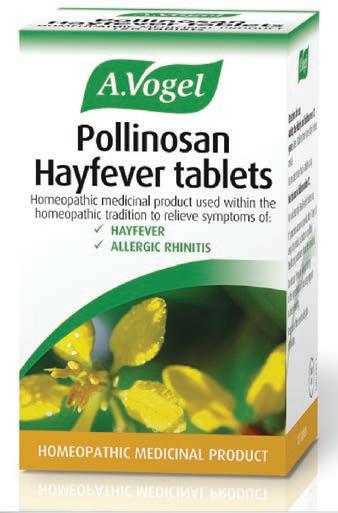
Rural communities vulnerable to loan sharks
BY: DEPUTY KATHLEEN
FUNCHION
SINN FEIN TD FOR KILKENNY CARLOW
SINN Féin TD for Carlow Kilkenny Kathleen Funchion TD has called on the Garda Commissioner to establish a specialised Garda operation to target illegal loan sharks operating in communities across Carlow and Kilkenny. is follows a continuing and worrying trend in unof cial reports of families falling victim to unregulated illegal loan shark groups within their communities.
Teachta Funchion said:
“Communities are afraid to make o cial reports to Gardaí for fear of the consequences.
“Pay-day money-lenders such as Provident have ceased trading, which was welcomed at the time.
“However, we now have a situation where the cost of living has vastly increased and families are struggling, so they have turned to illegal moneylenders. ese lenders are often members of local criminal gangs. I am fearful that we will see a rise in people from Carlow and Kilkenny turning to money lenders as families continue to struggle to make ends meet.
“When people are unable to “When people are unable to meet the extortionate inter-meet the extortionate interest and repayment costs, they est and repayment costs, they are then threatened or their are then threatened or their property is damaged. In some property is damaged. In some circumstances, these people circumstances, these people are being intimidated and are being intimidated and assaulted.
“Sinn Fein have written to “Sinn Fein have written to the Garda Commissioner the Garda Commissioner to make him aware of the to make him aware of the ongoing situation, and I ongoing situation, and I have asked him to put a have asked him to put a targeted Garda team in targeted Garda team in place to tackle the ac-place to tackle the activities of these criminals tivities of these criminals who are a blight on who are a blight on communities. communities.
“Due to the fear “Due to the fear these gangs instil these gangs instil in their victims in their victims and the fear they and the fear they have of report-have of reporting the crime, a ing the crime, a specialised ap-specialised approach will be proach will be required.
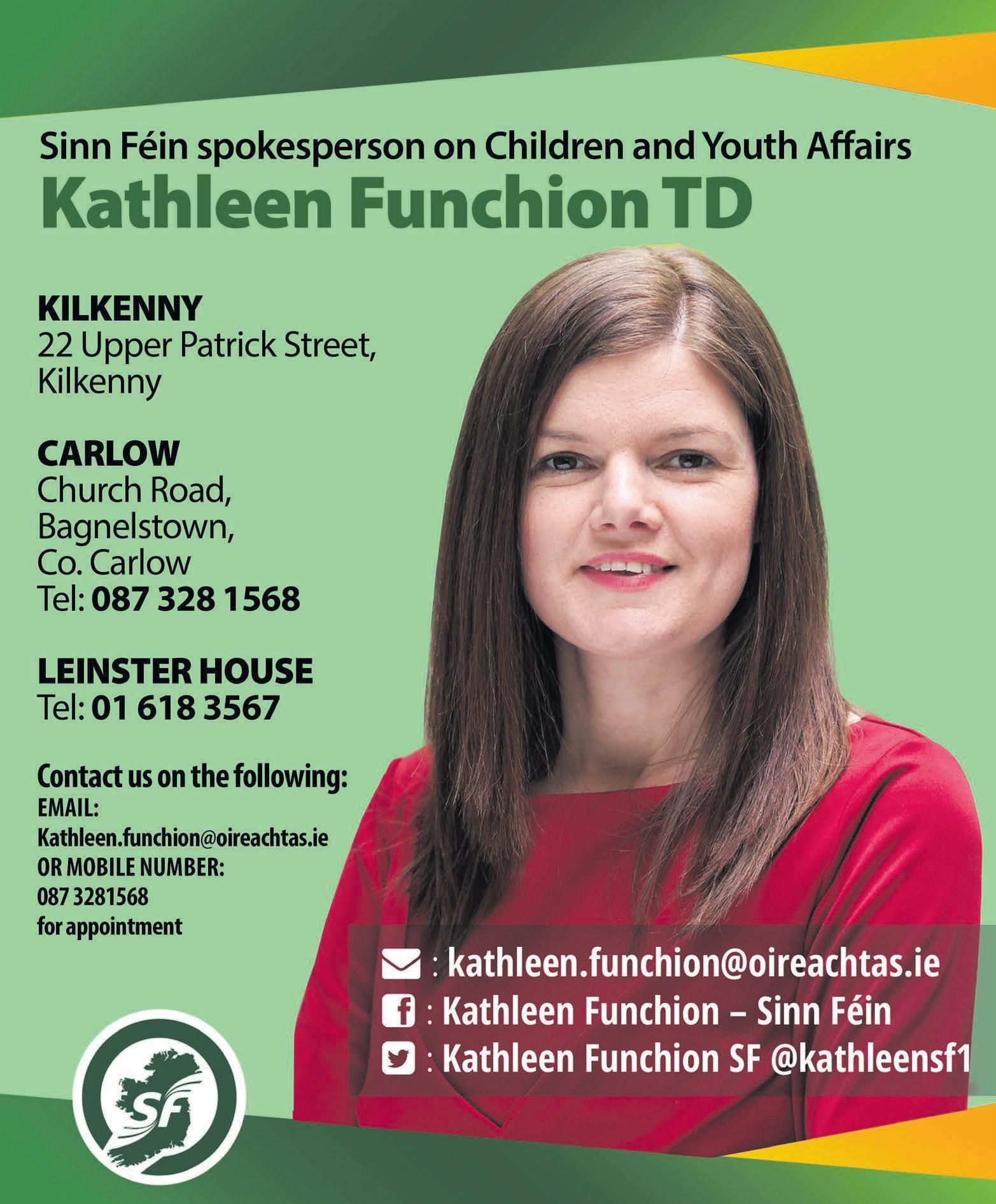
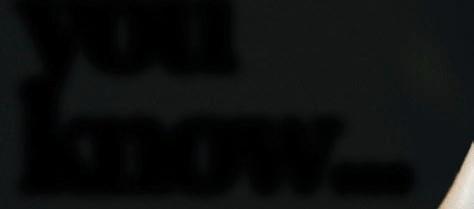

More than two years ago, in those early, and dreadful, terrifying days of the Covid pandemic scientists and medics o ered one piece of reassuring news about the emerging coronavirus, that was that it mutated slowly. e earliest mutations did not appear to be consequential. A vaccine, if and when it was invented, might not need regular updating over time. is has proved just too optimistic. e coronavirus, SARSCoV-2, has had billions of chances to recon gure itself as it has spread across the globe, and it continues to evolve, generating new variants and subvariants at a pace that has kept the world’s leading scientists on their toes. Two-and-a-half years after it rst spilled into humans, the virus has repeatedly changed its structure and chemistry in ways that confound e orts to bring it fully under control.
And it’s not showing signs of settling down into a harmless old age. Even with all the changes so far, it still has abundant evolutionary space to explore, according to virologists who are tracking it closely. What that means in practical terms is that a virus that’s already extremely contagious could become even more so.
“ is virus has probably got tricks we haven’t seen yet,” virologist Robert F. Garry of Tulane University in Louisiana said. “We know it’s probably not quite as infectious as measles yet, but it’s creeping up there, for sure.” e latest member of the rogue’s gallery of variants and sub-variants is the ungainly named BA.2.12.1, part of the Omicron family. Preliminary research suggests it is about 25% more transmissible than the BA.2 sub-variant that is currently dominant nationally, according to the Centres for Disease Control and Prevention (CDC). It said the subvariant has rapidly spread in the Northeast in particular, where it accounts for the majority of new infections.
“We have a very, very contagious variant out there. It is going to be hard to ensure that no one gets covid in America. at’s not even a policy goal,” President Biden’s new Covid-19 Co-ordinator Ashish Jha said in his inaugural news brie ng.
He was answering a question about Vice-President Harris, who recently tested positive for the virus and went into isolation. Ms Harris had recently been boosted for the second time — her fourth shot of vaccine.
Her case highlights what has become painfully obvious in recent months: No amount of vaccination or boosting can create a perfect shield against infection from SARS-CoV-2. What the vaccines do very well, however, is greatly reduce the risk of severe illness. e vaccines currently used were all based on the genomic sequence of the original strain of the virus that spread in late 2019 in Wuhan, China. ey essentially mimic the spike protein of that version of the virus and trigger an immune response that is protective when the real virus shows up.
But the variants that have emerged can evade many of the neutralising antibodies that are the immune system’s front line of defence.
“It’s evolving at a fairly rapid rate,” said Jesse Bloom, a computational biologist at the Fred Hutchinson Cancer Research Centre in Seattle, Washington. “I do think we need to aggressively consider whether we should update vaccines, and do it soon.”
BA.2.12.1 brings the novel coronavirus up another step on the contagiousness scale. Its close relative, BA.2, was already more transmissible than the rst Omicron strain that hit the country in late 2021.
And Omicron was more transmissible than Delta, and delta was more transmissible than Alpha, and Alpha was more transmissible than earlier variants that did not have the glory of a Greek alphabet name.
Most mutations are not advantageous to the virus. But when a mutation o ers some advantage, the process of natural selection will favour it. ere are two fundamental ways that the virus can improve its tness through mutation. e rst could be described as mechanical: It can become innately better at infecting a host. Perhaps it improves its ability to bind to a receptor cell. Or perhaps the mutation allows the virus to replicate in greater numbers once an infection has begun — increasing the viral load in the person and, commensurately, the amount of virus that is shed, potentially infecting other people. e other strategy involves the workaround of immunity. e human immune system, when primed by vaccines or previous infection to be alert for a speci c virus, will deploy antibodies that recognise and neutralise it. But mutations make the virus less familiar to the immune system’s front-line defence.
Scientists in South Africa have identi ed BA.4 and BA.5, which have mutations that were seen in earlier variants and are associated with immune evasion. Caseloads there are rising. New laboratory research, not yet peerreviewed, indicated that the emerging sub-variants are adept at eluding the neutralising antibodies seen in people who recovered from infections with the original omicron variant. e authors of the study concluded that BA.4 and BA.5 have the “potential to result in a new infection wave”. e BA.2 ‘stealth’ Omicron variant is expected to soon become the dominant strain.
“ e evolution is much more rapid and expansive than we initially estimated,” said Michael T. Osterholm, a University of Minnesota infectious-disease expert. “Every day I wake up, I fear there will be a new sub-variant that we will have to consider. ... We’re seeing subvariants of sub-variants.”
Mr Garry, the Tulane scientist, points out that mutations
in the virus do not change its appearance dramatically. In fact, he said, even the heavily mutated variants don’t look much di erent from the original Wuhan strain, or di erent from other coronaviruses that cause common colds. ese are subtle changes.
On the family tree of this coronavirus, Omicron is a distant cousin of Delta, Alpha and the other variants that had spread earlier — it came out of virologic left eld. No one is sure of the origin of Omicron, but many disease experts assume it came from an immunocompromised patient with a very lengthy illness, and the virus continued to use mutations to evade the immune system’s e orts to clear it.
Omicron was mercifully less likely to kill a person than previous variants. But infectiousdisease experts are clear on this point: Future variants could be more pathogenic.
As if mutation wasn’t enough of a problem, the virus has another trick up its sleeve: recombination. It happens when two distinct strains infect a single host simultaneously and their genes becoming entangled. e recombination process is the origin of what’s known as Omicron XE. at recombinant probably emerged from a person co-infected with the original omicron variant and the BA.2 sub-variant. e worst-case scenario would be the emergence of a variant or recombinant that renders current vaccines largely ine ective at blocking severe disease. But so far, that hasn’t happened. And no “recombinant” has spread like Omicron or other recent variants and sub-variants. is is the rst catastrophic pandemic to occur in the age of modern genomic sequencing. A century ago, no one knew what a coronavirus was, and even a ‘virus’ was a relatively new concept. But today, with millions of samples of the virus analysed at the genetic level, scientists can track mutations virtually in real time and watch the virus evolve.
SPECIAL REPORT It hasn’t gone away, you know...
New emerging variants may see global scientists frantic to find new vaccines

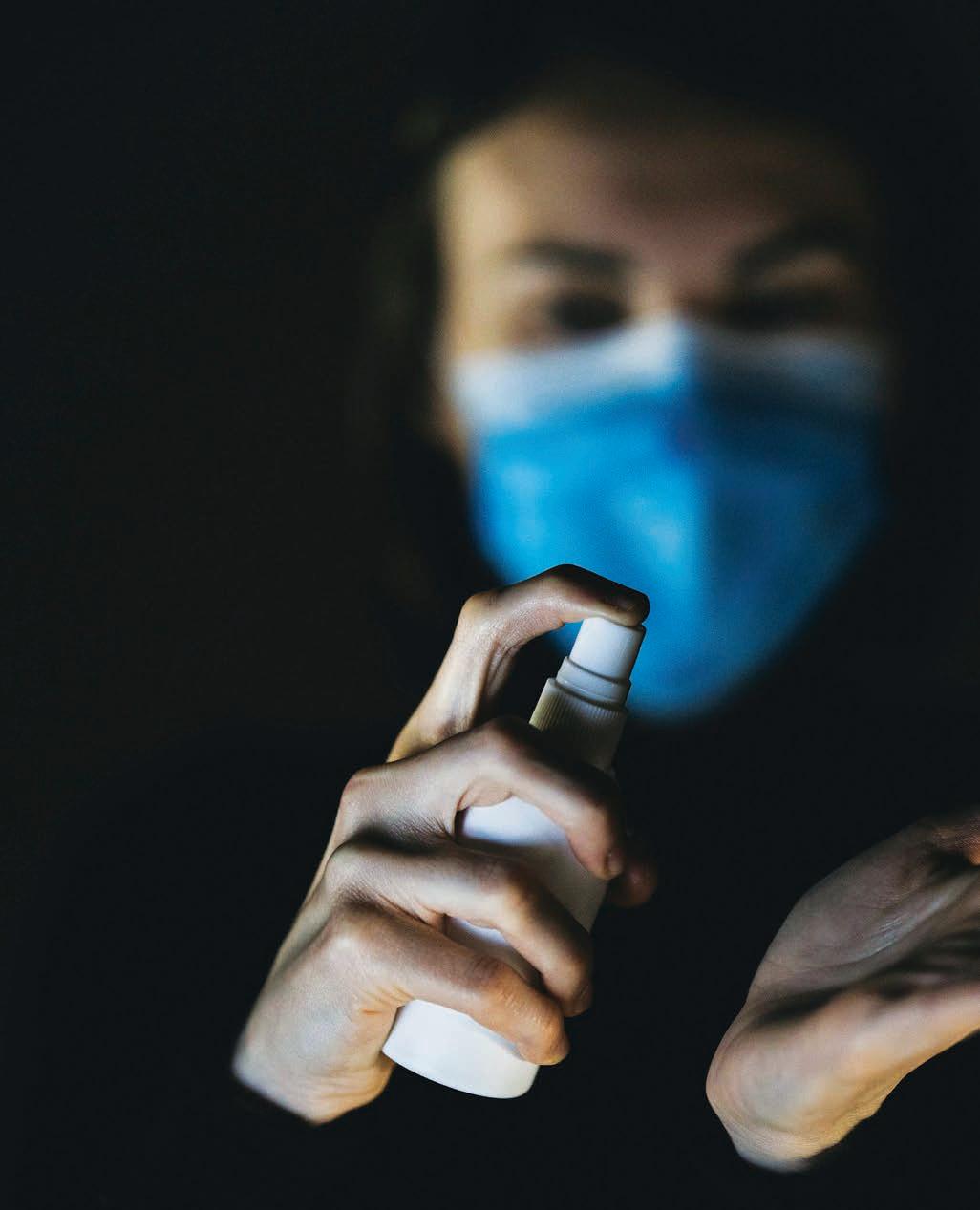
‘The corona has had billions of chances to reconfigure itself... itself...
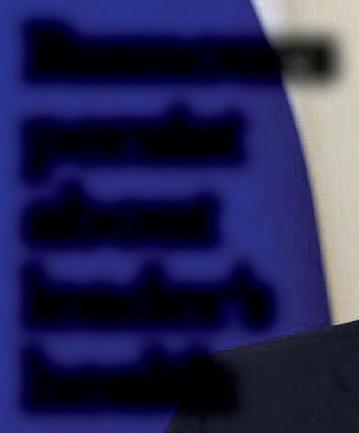
ONCE upon a recent time, as recently as last November, Russian Oleg Y. Tinkov was worth more than $9 billion. One of Russia’s few self-made business tycoons after building his fortune outside the energy and minerals industries that were the playgrounds of Russian kleptocracy. en, in April, Mr Tinkov, the founder of one of Russia’s biggest banks, criticised the war in Ukraine in a post on Instagram. e next day, he said, President Vladimir V. Putin’s administration contacted his executives and threatened to nationalise his bank if it did not cut ties with him. Last week, he sold his 35% stake to a Russian mining billionaire in what he describes as a “desperate sale, a re sale” that was forced on him by the Kremlin.
“I couldn’t discuss the price,” Mr Tinkov said. “It was like a hostage — you take what you are o ered. I couldn’t negotiate.” e New York Times spoke with Mr Tinkov, 54, by phone recently, from a location he would not disclose, in his rst interview since Putin invaded Ukraine. He said he had hired bodyguards after friends with contacts in the Russian security services told him he should fear for his life, and quipped that, while he had survived leukemia, perhaps “the Kremlin will kill me”. It was a swift and jarring turn of fortune for a longtime billionaire who for years had avoided running afoul of Putin while portraying himself as independent of the Kremlin. His downfall underscores the consequences facing those in the Russian elite who dare to cross their president, and helps explain why there has been little but silence from business leaders who, according to Mr Tinkov, are worried about the impact of the war on their lifestyles and their wallets.
In the interview with journalist Anton Troianovski and Ivan Nechepurenko, Mr Tinkov spoke out more forcefully against the war than has any other major Russian business leader.
“I’ve realised that Russia, as a country, no longer exists,” Mr. Tinkov said, predicting that Mr. Putin would stay in power a long time. “I believed that the Putin regime was bad. But of course, I had no idea that it would take on such catastrophic scale.”Tinko , the bank Mr Tinkov started in 2006, denied his characterisation of events and said there had been “no threats of any kind against the bank’s leadership.” e bank, which has announced hat Mr Tinkov had sold his entire stake in the company to a rm run by Vladimir Potanin, a mining magnate close to Putin, appeared to be distancing itself from its founder.
Mr Tinkov is widely seen as a rare Russian business pioneer, modelling his maverick capitalism on Richard Branson and morphing from irreverent beer brewer to founder of one of the world’s most sophisticated online banks. He says he has never set foot in the Kremlin, and he has occasionally criticised Putin.
But, unlike Russian tycoons who years ago broke with Putin and now live in exile, such as the former oil magnate Mikhail B. Khodorkovsky or the tech entrepreneur Pavel Durov, Mr Tinkov found a way to coexist with the Kremlin and make billions — at least until April 19 just gone. at is when Mr Tinkov published an emotional antiwar post on Instagram, calling the invasion “crazy” and deriding Russia’s military: “Why would we have a good army,” he asked, if everything else in the country is dysfunctional “and mired in nepotism, servility and subservience?”
Pro-war Russians posted photos of their shredded Tinko debit cards on social media. Vladimir Solovyov, a prominent state television host, delivered a tirade against him, declaring: “Your conscience is rotten.”
Mr Tinkov was already outside Russia at that point, having departed in 2019 to receive treatment for leukemia. He later stepped down and ceded control of Tinko , but kept a 35% stake in the company, which was valued at more than $20 billion on the London stock exchange last year.
A day after the April 19 post, Mr Tinkov said the Kremlin contacted the bank’s senior executives and told them that any association with their founder was now a major problem.
“ ey said: ‘ e statement of your shareholder is not welcomed, and we will nationalise your bank if he doesn’t sell it and the owner doesn’t change, and if you don’t change the name,’” Mr Tinkov said, citing sources at Tinko he declined to identify.
On April 22, Tinko announced it would change its name this year, a step it claims was long planned. Behind the scenes, Mr Tinkov said, he was scrambling to sell his stake — one that had already been devalued by Western sanctions against Russia’s nancial system.
He said he was thankful to Mr. Potanin, the mining magnate, for allowing him to salvage at least some money from his company; he said that he could not disclose a price, but that he had sold at 3% of what he believed to be his stake’s true value.
“ ey made me sell it because of my pronouncements,” Mr Tinkov said. “I sold it for kopecks.”
He had been considering selling his stake anyway, Mr. Tinkov said, because “as long as Putin is alive, I doubt anything will change.”
“I don’t believe in Russia’s future,” he said. “Most importantly, I am not prepared to associate my brand and my name with a country that attacks its neighbours without any reason at all.”
Mr Tinkov is concerned that a foundation he started that is dedicated to improving blood cancer treatment in Russia could also become a casualty of his nancial trouble.
He said that his illness — he is now su ering from graftversus-host disease, a stemcell transplant complication, he said — might have made him more courageous about speaking out than other Russian business leaders and senior o cials. Members of the elite, he claimed, are “in shock” about the war and have called him in great numbers to o er support.
“ ey understand that they are tied to the West, that they are part of the global market, and so on,” Mr Tinkov said. “ ey’re fast, fast being turned into Iran. But they don’t like it. ey want their kids to spend their summer holidays in Sardinia.”
Mr. Tinkov said that no one from the Kremlin had ever contacted him directly, but that in addition to the pressure on his company, he heard from friends with security service contacts that he could be in physical danger.
“ ey told me: ‘ e decision regarding you has been made,’” he said. “Whether that means that on top of everything they’re going to kill me, I don’t know. I don’t rule it out.”
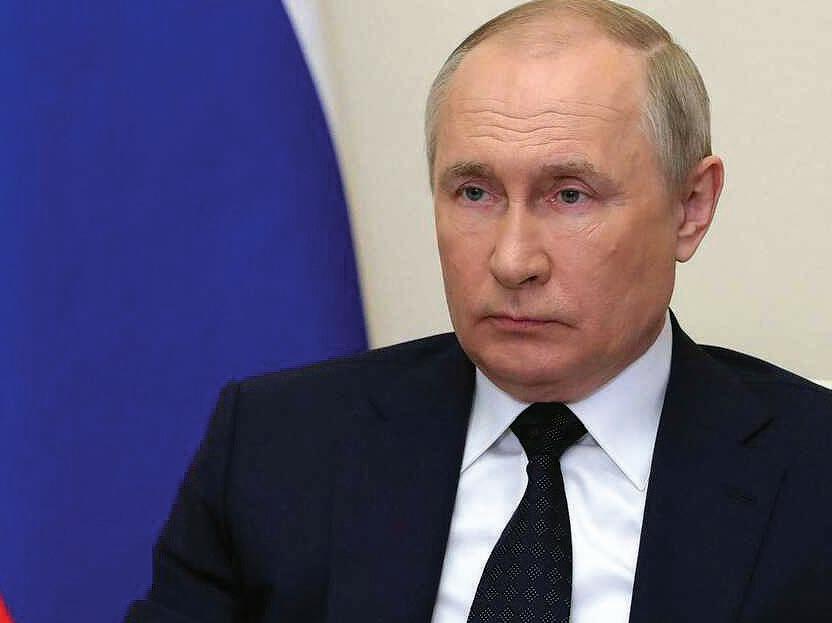
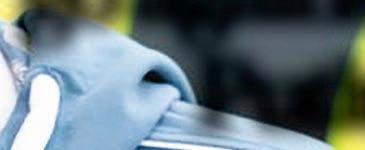
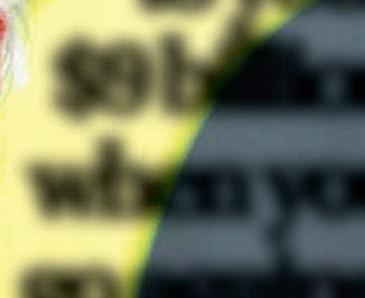
ALMOST since the beginning of Russia’s invasion of Ukraine, there have been repeated rumours that Vladimir Putin is critically ill and could be set for surgery.
In the past two and a half months Russian forces have laid waste to great tracts of Ukraine under the orders of Putin, who has long enjoyed a reputation as a shrewd geopolitical operator.
As the invasion falters and the Russian army falls far short of its aim to take Kyiv in four days however, that reputation has fallen under intense scrutiny. e apparently reckless and ill thought-out invasion have led many to wonder whether a man once considered to be a master strategist has been diminished by poor health.
One rumour that has hung over the 69-year-old leader since long before the invasion of Ukraine is that he has some kind of central nervous system condition, such as Parkinson’s.
Recently such speculation reached a new intensity when a video of Putin from midFebruary welcoming Belarusian leader Alexander Lukashenko began to circulate.
In it the former KGB operative is seen holding one hand to his chest while the other is held in a st.
As his hand begins to tremor uncontrollably, Putin pulls it close to his chest, in an apparent attempt to stop the shaking.
Despite his e orts, as he walks toward his long-time ally and fellow election stealer he wobbles unsteadily as his legs continue to tremble.
While the secretive Russian leader — who says he “does not permit” any form of intrusion into his personal life — is unlikely to release reliable medical records for himself anytime soon, armchair physicians were quick to speculate about possible Parkinson’s.
Parkinson’s is a condition in which the brain loses nerve cells, causing problems like shaking and sti ness that get worse over time.
Although there are now treatments to dampen its a ects, there is no cure for the condition, which can lead to memory loss and make people more susceptible to deadly infections.
Some medical professionals have poured cold water on the Parkinson’s theory however.
John Hardy, a neurogeneticist at the UK Dementia Research Institute, told German news platform Deutsche Welle that the video did not suggest Parkinson’s to him.
“No sign of Parkinson’s in my view. He did not look well... but not Parkinson’s disease,” he said.
Ray Chadhuri, a neurologist at the University of London, agreed, saying: “Looking at the short clip, I can nd no evidence that I can tell of Parkinson’s in Putin.”
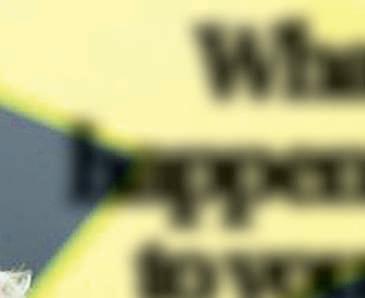

Tinkov: “I couldn’t discuss the price. It was like a hostage — you take what you are o ered. I couldn’t negotiate”









